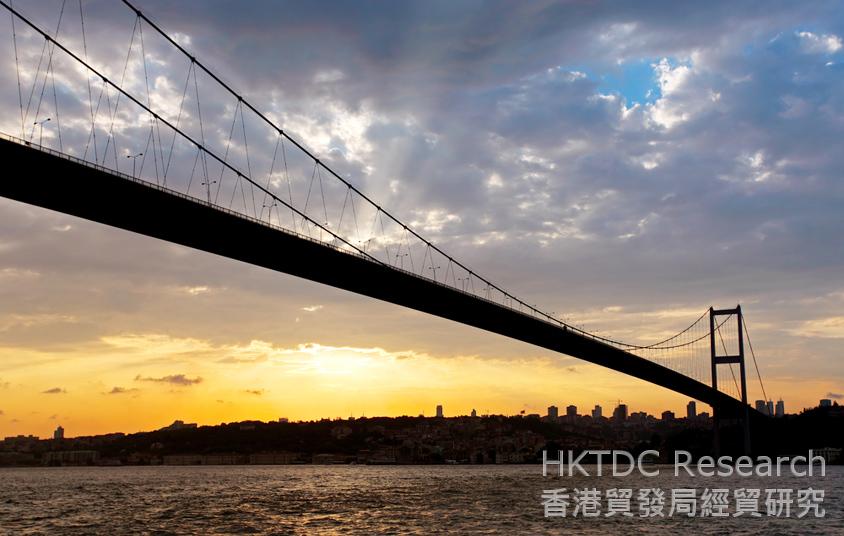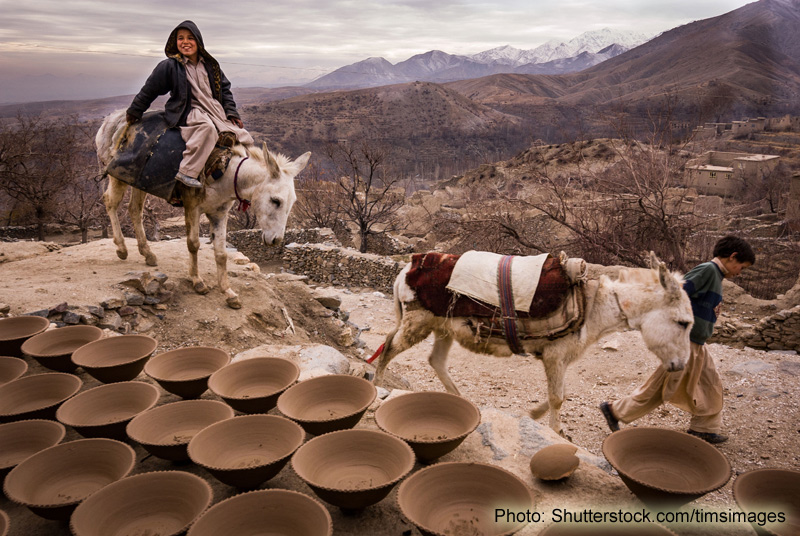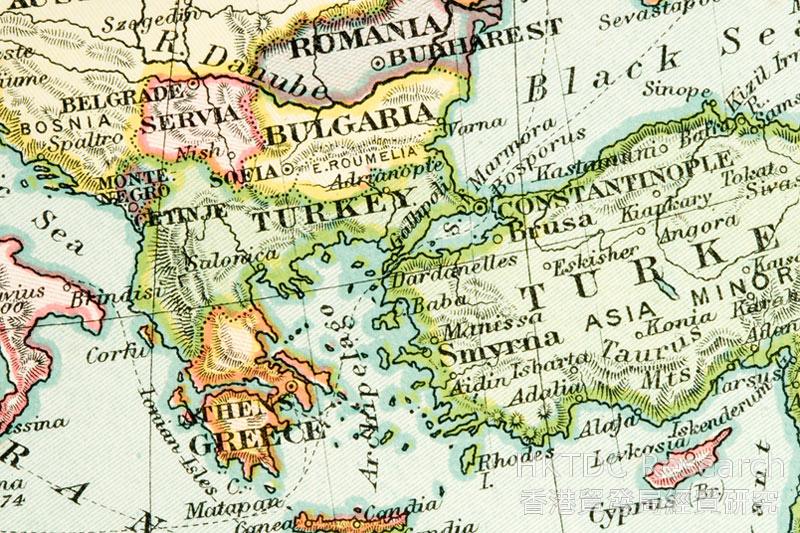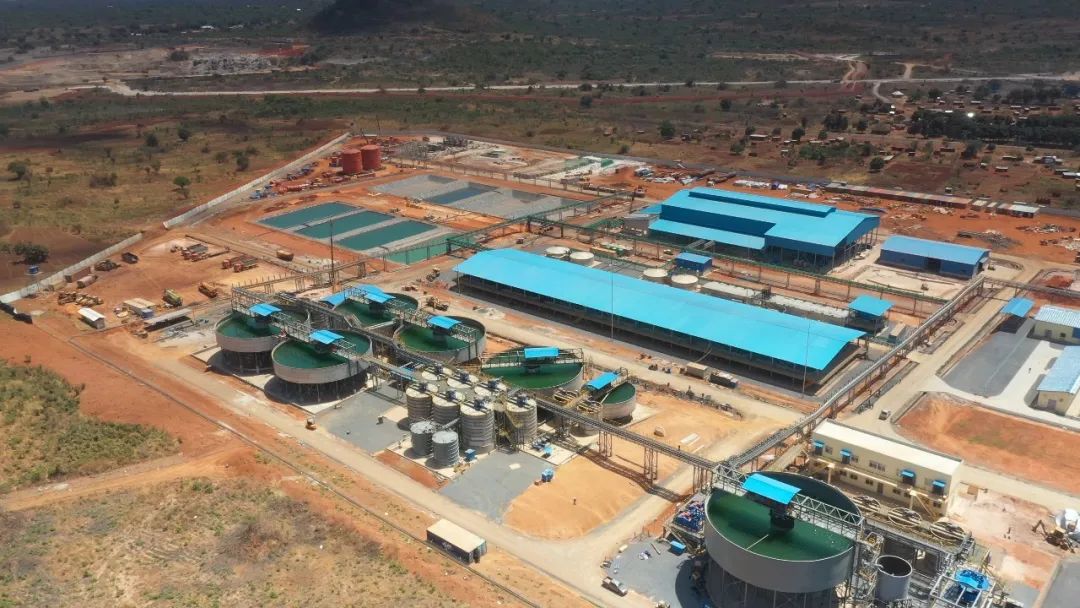Turkey Set for Eastward Pivot as Potential BRI Benefits Beckon
Five years on from the launch of the Belt and Road Initiative, the second part of a report on the implications for Turkey of China's economic masterplan focuses on the likely long-term geopolitical transformation of the wider Eurasian region.

China's Belt and Road Initiative (BRI) presents a number of opportunities for Turkey, many of which will have wide-ranging implications for the country's economy and geopolitical standing. Naturally enough, many within its business, academic and governmental sectors have strong views as to its possible benefits and likely pitfalls.
With a particular emphasis on the broader geopolitical issues that may influence Turkey's view of China's mega-project, a number of senior Turkish figures were asked to give their assessment of the current state of play. Perhaps unsurprisingly, given the unprecedented scale and nature of the BRI, it was clear, overall, that no real consensus has yet emerged.
Stabilising Influence
While the BRI's primary effect will be economic, the shift in trading routes and patterns it is set to cause will, inevitably, lead to changes in political relationships across Eurasia. While it is a long-held maxim that improved trade and improved stability go hand-in-hand, not everyone in Turkey seems wholly convinced.
There is, however, a widely shared belief that the BRI will transform far more than just trade arrangements. One Turkish businessman who is convinced of that is Şahin Saylik, General Manager of Kırpart, a leading automotive-parts company with operations in China. Seeing its implications as potentially very broad indeed, he said: "The BRI will definitely have a major geopolitical effect in terms of bringing peace to unstable regions, for instance.
"Good trading partnerships will force countries to have more understanding of, and be more sympathetic with, the region's political relationships. Stabilisation and security are must-haves if the project is to succeed.
"It is a gigantic undertaking that involves considerable economic, cultural, social and political development, as well as stabilisation and peace in the region. As a geographically important player, Turkey can only benefit from the positives the project offers."
Turgut Kerem Tuncel, a senior analyst at Ankara's Center for Eurasian Studies, is another who believes the BRI will be a stabilising influence throughout the Eurasian region, saying: "Potentially, the BRI will have a great geopolitical effect on the region. Liberal internationalist experts view the BRI as a driver for peace, arguing that enhanced trade ties among countries will inevitably aid stability. Certainly, there is some truth to that view."
Iran's Importance
One Eurasian nation that could particularly benefit from an increase in regional trade and stability is Iran. It is currently facing a renewal of US sanctions after the Trump administration pulled out of the Joint Comprehensive Plan of Action (JCPOA) nuclear agreement between Tehran and the US, UK, France, Germany, China and Russia. Coupled with the recent anti-Iranian rhetoric from Israel and the US, the move may mean the BRI takes on an even greater significance within its borders.
Highlighting the importance of Iran to Turkey, Salih Işik Bora, an International Trade Analyst at the Center for Eurasian Studies, said: "Turkey has many good reasons to proactively address the geopolitical challenges that could negatively impact on the BRI. Perhaps the most important is the advancement of collaboration with Iran, as the two countries will together form a critical juncture between Central Asia and Europe.
"Tehran is currently moving towards wider integration with the world economy. A major indicator of this trend is Iran's improving ties with Europe, as illustrated by French oil company Total's recent signing of a $4 billion treaty with Tehran. At the same time, Beijing is clearly interested in enrolling Iran in the BRI, as was shown by Xi Jinping's 2016 announcement that China wants to increase its bilateral trade with the country to $600 billon over the next 10 years."
Pointing out that even the end of the JCPOA nuclear agreement and the threat of fresh sanctions may not halt Iran's progress towards greater international economic integration, he added: "Even the American business community seems eager to lift the current sanctions. Boeing, for instance, recently signed a $3 billion deal to supply civilian aircraft to Iran."
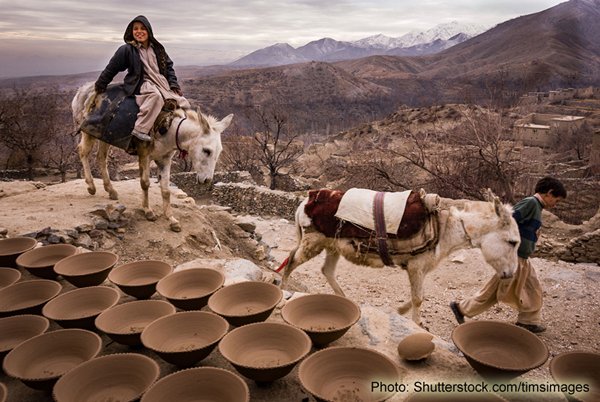
Highlighting Afghanistan as another potential beneficiary, Selçuk Çolakoğlu, Professor of International Relations at Ankara's Turkish Center for Asia Pacific Studies, said: "In order to be successful, the BRI is reliant on a wide range of co-operative efforts across a host of different sectors, from infrastructure to developmental aid. This is hugely significant, given that the BRI projects put forward by other countries have largely concentrated just on developing their transportation infrastructure and improving their integration into the world market through trade liberalisation.
"All these efforts aim to build up regional integration through economic and political co-operation. Afghanistan, as one of the heartlands of Asia, could theoretically become a key hub for transit transportation, regional trade and economic and political co-operation with the help of BRI-related initiatives."
Increased Competition
While improved trade may enhance peace and security, a freer flow of goods and services is not without its potential downside. Addressing this particular issue, Tuncel said: "The BRI may well trigger competition among countries. Eurasian nations could compete with one another to try to ensure that various trade routes pass through their own territories as a way of elevating their own geopolitical significance and maximising their own economic benefits. Nevertheless, as long as the competition remains healthy, it may also facilitate the overall modernisation of the region.
"There may also be competition among the major powers. For example, while the EU seems to have a broadly positive view of the BRI, some indicators show the US is somewhat more cynical.
"Russia's view of the BRI is also worth considering. While the Kremlin wants to create a closed regional economic zone, with the Eurasian Economic Union evolving into a political bloc, the success of the BRI depends on openness. As China is likely to become a dominant force in the region, that may cause problems in its future relationship with Russia."
Looking East
As the EU, the world's largest single market, is on its doorstep, Turkey has long been reliant on exporting its goods to Europe. Its attempts to actually join the bloc have been fruitless and, given the current political climate, look set to remain just that.
For some, though, the BRI gives the country an opportunity to turn away from the west and seek new trading relationships in the east. Clearly an advocate of this particular strategy, Nicol Brodie, an analyst with the Australian National University in Canberra, said: "The BRI is an opportunity for Turkey's President Erdoğan and his government to reduce its economic dependence on the European economies and hedge against deteriorating relations with the United States and NATO. It provides Turkey with trade, foreign direct investment and is a vehicle through which it can establish its economic and cultural footprint across central Asia.
"Turkey's relations with the United States, its long-term security partner, and Germany, its major economic partner, have been frosty for some time. The BRI, though, provides Turkey with a way to explore alternatives to these existing economic and strategic partnerships and simultaneously helps China create its own economic architecture.
"Crucially, it allows both nations to strengthen their relationship without entering into direct opposition with the US. It would be difficult, for example, to find specific reasons to support any claim that the Sino-Turkish relationship undermines the latter's NATO membership."
Tuncel also saw distinct benefits in Turkey potentially pivoting from the west to the east, saying: "Obviously, Turkey's deteriorating relations with the US and the EU, which dashed its hopes of accession to the EU, has generated additional interest in the BRI.

"In Turkey, a visible section of the intelligentsia and political class has voiced support for Turkey's looking east at the expense of its historical inclination attachment to the west. For them, deeper relations with China, Iran and Russia are needed to counter the west's perceived hostility.
"The BRI is a potential lever that can allow Ankara to become the ultimate kingmaker in the Eurasian arena, while increasing its economic and political sphere of influence. If Beijing and Ankara can reach a suitable accommodation, Turkey may well become the backbone of the BRI."
Problems for the West
As Turkey increases its focus on its Eurasian connections, the relevance of western institutions is likely to decrease. This may create difficulties for the US and NATO, given Turkey's key position in relation to the Middle East, the Balkans and the Black Sea states.
Focusing on this particular problem for the west, Brodie said: "This will inevitably put the United States and its NATO partners in a difficult position. While they cannot oppose a trade relationship, they will still be worried about Turkey's attempts to slowly decouple itself from the west's economic and strategic embrace.
"Overall, Turkey's engagement with the BRI and its growing relationship with China is likely to become one of the more permanent fixtures of Turkish politics. The BRI, after all, is compatible with Turkey's defence and economic integration with NATO and Europe."
Complacency Concerns
While many in Turkey are optimistic about the opportunities the BRI presents, there is a growing feeling that this very confidence may present risks, with Turks assuming that the country's advantageous geographic position ensures its advantageous participation. Sounding a warning note in this regard, Tuncel said: "Over-confidence among the majority of Turkish experts and policy makers over the country's geostrategic position is a worry. While it is true that Turkey is in a strategically very important location, this only becomes meaningful if the relevant economic and infrastructural projects are actually implemented.
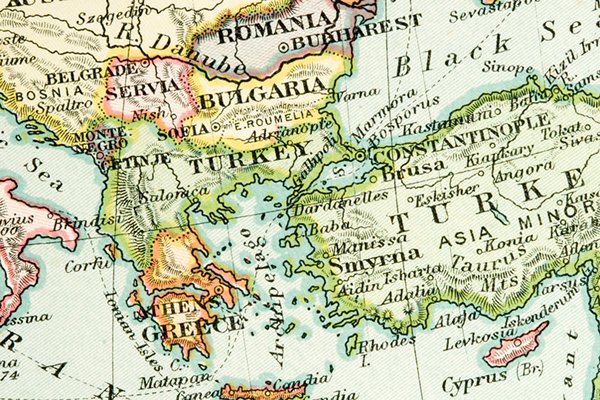
"This requires deeds rather than bombastic rhetoric. In brief, over-confidence, idleness and the possibility of falling behind with infrastructure modernisation seem to be the major obstacles that have to be overcome to ensure that Turkey can both be fully engaged with the BRI and subsequently benefit from its involvement."
George Dearsley, Special Correspondent, Ankara
For further analysis of Turkey's likely role within the BRI, see part one of this report: "While Concerns Linger, Turkey's BRI Commitment Remains Steadfast", 14 May 2018.
